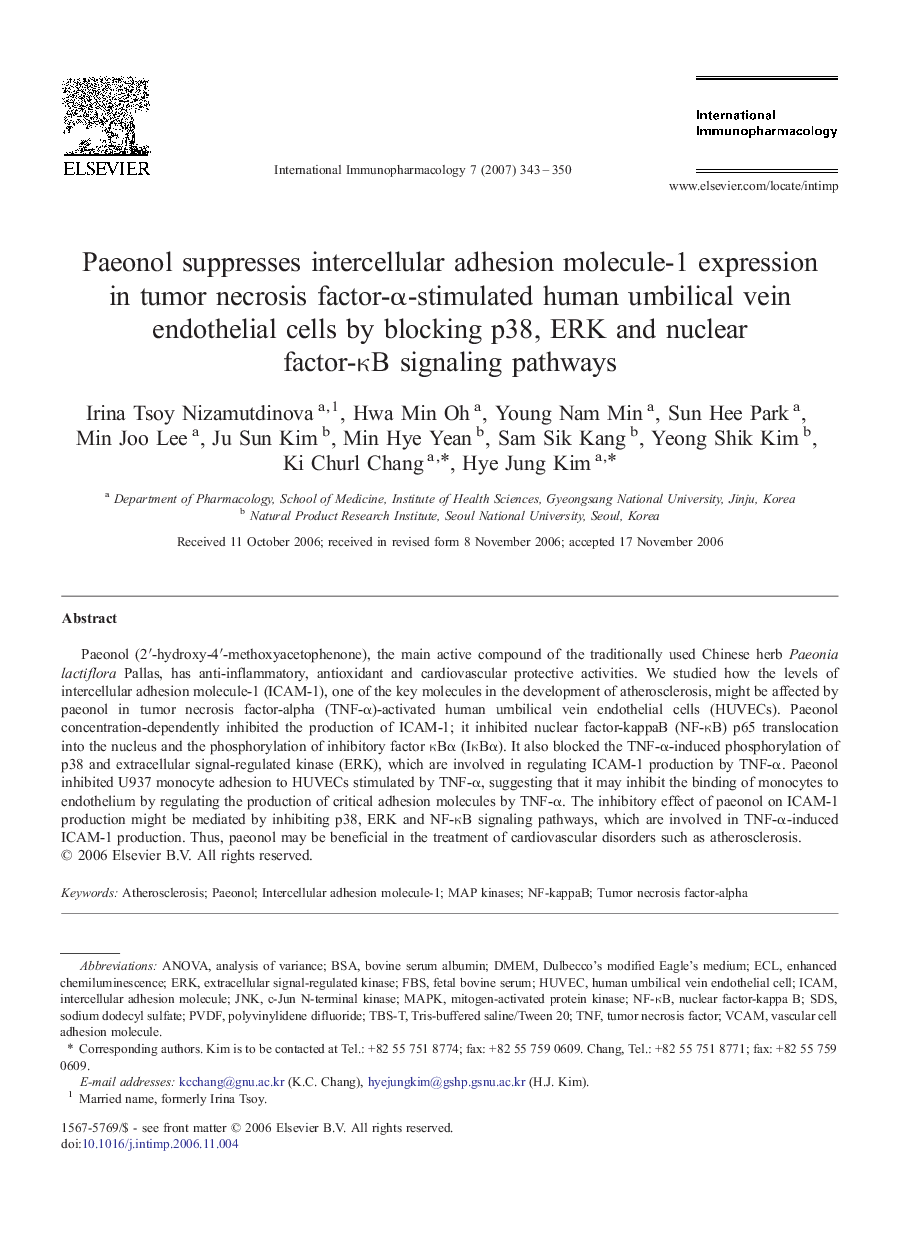| Article ID | Journal | Published Year | Pages | File Type |
|---|---|---|---|---|
| 2541705 | International Immunopharmacology | 2007 | 8 Pages |
Paeonol (2′-hydroxy-4′-methoxyacetophenone), the main active compound of the traditionally used Chinese herb Paeonia lactiflora Pallas, has anti-inflammatory, antioxidant and cardiovascular protective activities. We studied how the levels of intercellular adhesion molecule-1 (ICAM-1), one of the key molecules in the development of atherosclerosis, might be affected by paeonol in tumor necrosis factor-alpha (TNF-α)-activated human umbilical vein endothelial cells (HUVECs). Paeonol concentration-dependently inhibited the production of ICAM-1; it inhibited nuclear factor-kappaB (NF-κB) p65 translocation into the nucleus and the phosphorylation of inhibitory factor κBα (IκBα). It also blocked the TNF-α-induced phosphorylation of p38 and extracellular signal-regulated kinase (ERK), which are involved in regulating ICAM-1 production by TNF-α. Paeonol inhibited U937 monocyte adhesion to HUVECs stimulated by TNF-α, suggesting that it may inhibit the binding of monocytes to endothelium by regulating the production of critical adhesion molecules by TNF-α. The inhibitory effect of paeonol on ICAM-1 production might be mediated by inhibiting p38, ERK and NF-κB signaling pathways, which are involved in TNF-α-induced ICAM-1 production. Thus, paeonol may be beneficial in the treatment of cardiovascular disorders such as atherosclerosis.
